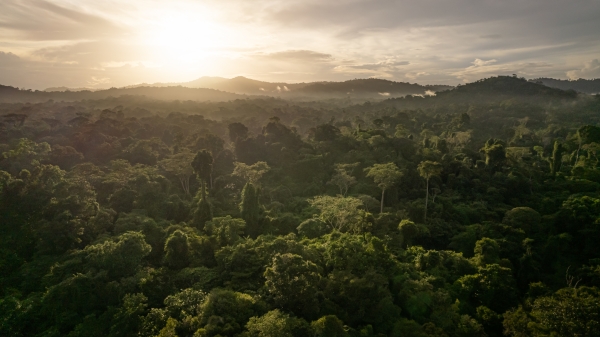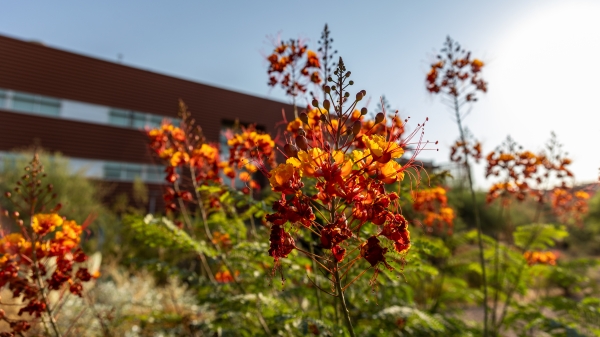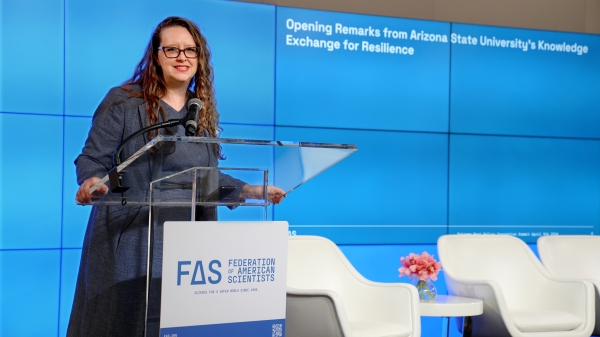Maysa Jalbout joins MIT, ASU in education advisory role
As visiting scholar and special adviser on the U.N. Sustainable Development Goals, Jalbout will advise leadership on educational initiatives for vulnerable populations

Maysa Jalbout's top priority will be to develop concrete ways in which to serve the education needs of displaced populations worldwide, underserved and disadvantaged communities, and under-skilled and underemployed youth.
Arizona State University and the Massachusetts Institute of Technology are pleased to announce the joint appointment of Maysa Jalbout as visiting scholar and special adviser on the United Nations Sustainable Development Goals. The announcement is made in advance of the 74th U.N. General Assembly in New York where world leaders and international organizations will gather to discuss global issues, including progress on the SDGs.
As a global leader with a deep commitment and expertise in supporting the most vulnerable people in the world in multiple sectors, Jalbout will work with the leadership of ASU and MIT to channel their talent, resources and technology toward thoughtful and deliberate SDG strategies, initiatives and partnerships.
Jalbout’s top priority will be to develop concrete ways in which to serve the education needs of displaced populations worldwide, underserved and disadvantaged communities, and under-skilled and underemployed youth. Jalbout will cast a wide net of potential partners including governments, the private sector, foundations and civil society organizations.
“I am thrilled at the chance to work alongside the incredible talent of two of the world’s most innovative universities. It is an opportunity to think, learn and experiment in ways very few positions offer,” said Jalbout. “I believe that universities can solve some of the greatest global challenges of our time, and that ASU and MIT are leading the way.”
“Maysa is a unique leader who has been able to work effectively across multiple cultures, organizations and continents to drive successful educational outcomes,” said ASU President Michael M. Crow. “We’re looking forward to her strategic counsel on ways that ASU and MIT can further collaborate to meet our mutual goals of transformative impact and contributing to the U.N. SDGs.”
“Making a better world through education is at the core of the mission of MIT. We are continuously searching for new meaningful ideas, approaches and tools. We are delighted to welcome Maysa and look forward to collaborating with ASU”, said Professor Sanjay Sarma, vice president for open learning at MIT.
Jalbout has more than 25 years of experience advocating for the rights of vulnerable populations, advising global leaders, building organizations and partnerships, and exploring the use of human-centered technology to address development challenges. She is a nonresident fellow at the Brookings Institution and serves on the boards Generation and the International Baccalaureate Organization. She founded the Abdulla Al Ghurair Foundation for Education and the Queen Rania Foundation and headed the government of Canada’s education policy in developing countries.
More Environment and sustainability

Study: Conservation actions highly effective at halting, reversing biodiversity loss
A new study, led and contributed to by Arizona State University faculty, provides the strongest evidence to date that not only is…

Barrett Honors College to host nature walks for science, relaxation
Barrett, The Honors College at Arizona State University is gearing up to participate in the City Nature Challenge (CNC) for the…

Arizona adapting to heat crisis with initiatives featured in ASU report
Arizona State University's Knowledge Exchange for Resilience, also known as KER, released its Recommendations Report on Extreme…